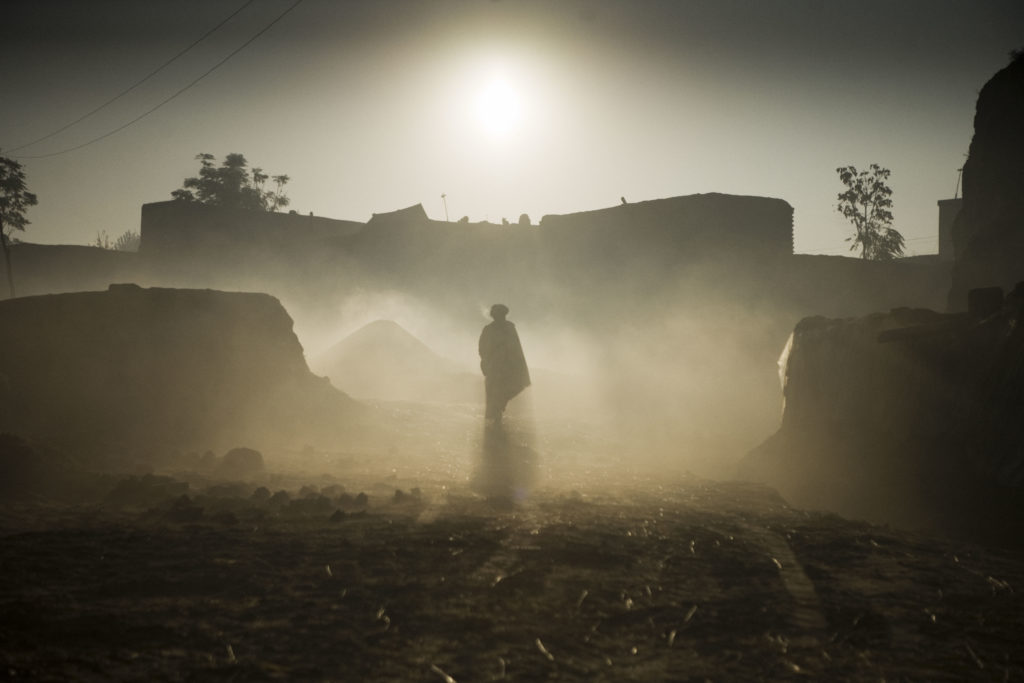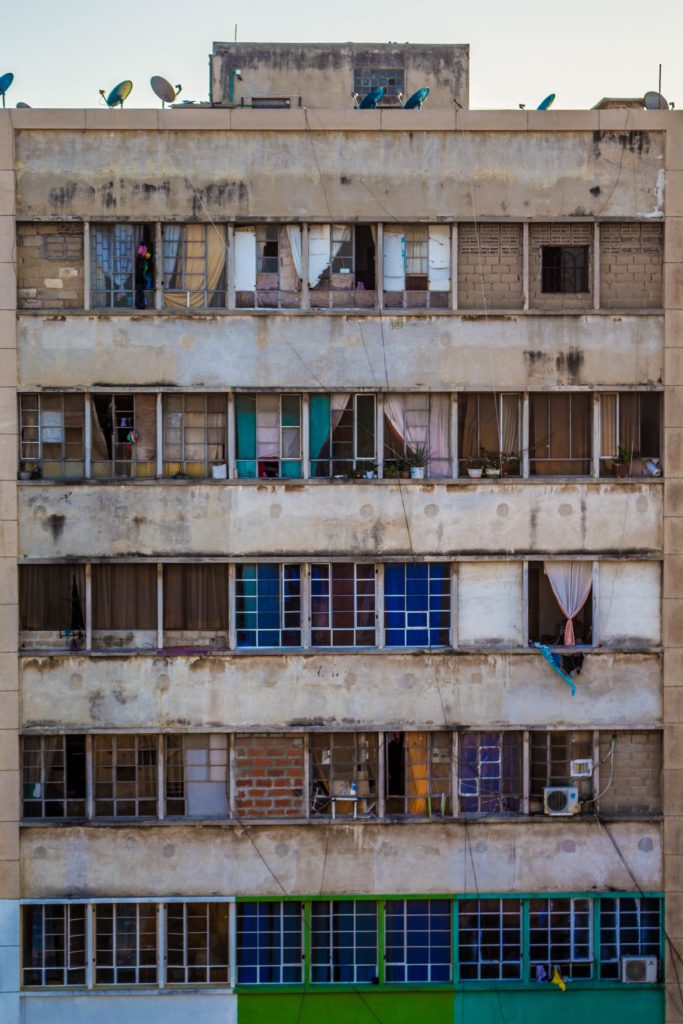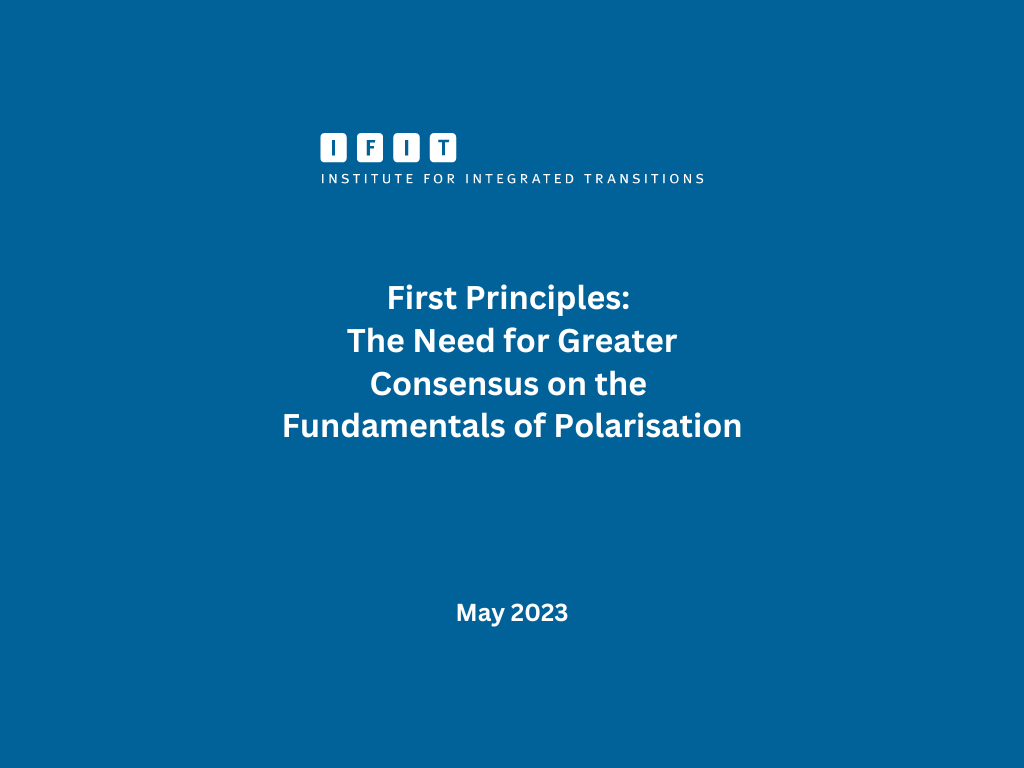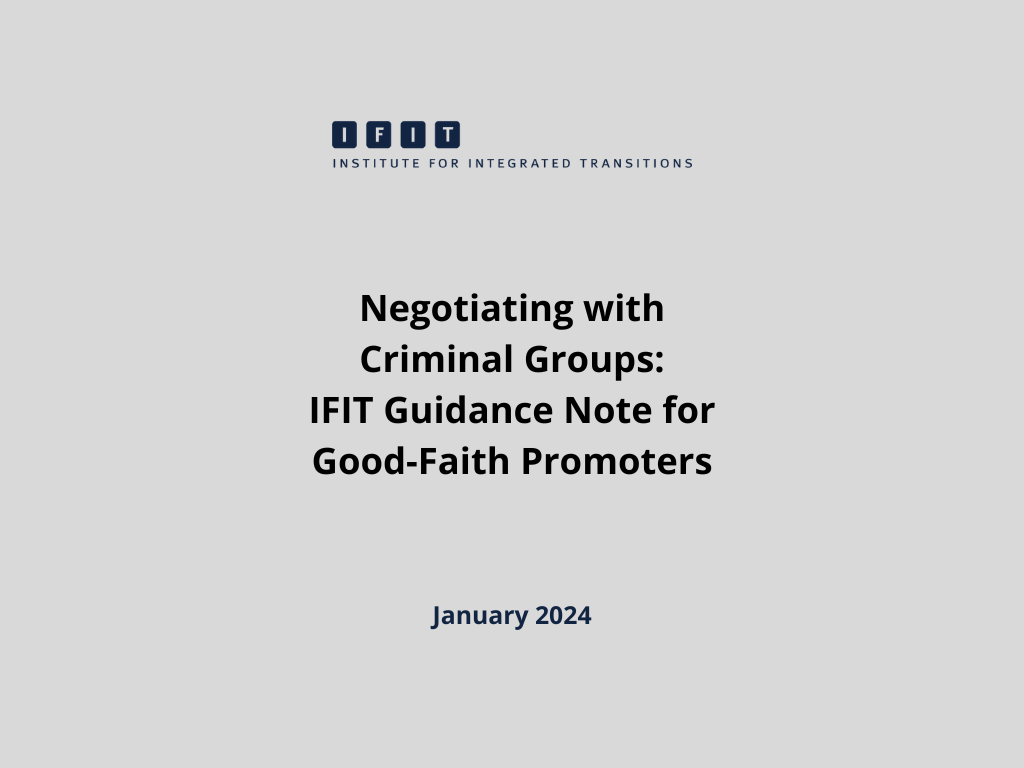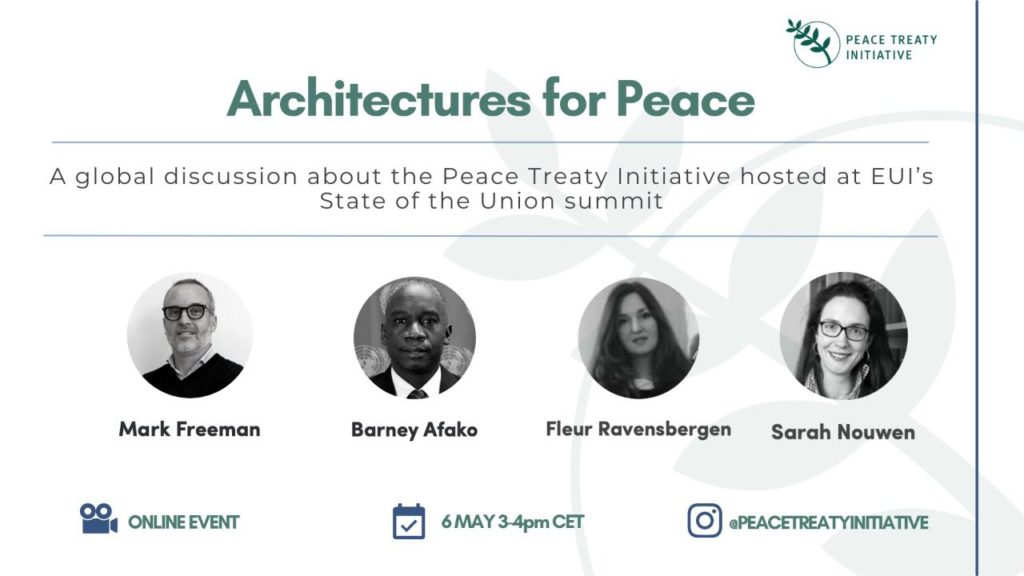Expert Team: Law and Peace Practice Group
Phil Clark is a Professor of International Politics at SOAS University of London. He specialises in conflict and post-conflict issues, including transitional justice, peacebuilding and reconciliation after mass atrocity in Rwanda, Uganda, the Democratic Republic of Congo and Burundi.
His most recent books are Distant Justice: The Impact of the International Criminal Court on African Politics (Cambridge University Press, 2018) – which was shortlisted for the Raphael Lemkin Award for best book on genocide and mass violence – and The Gacaca Courts, Post-Genocide Justice and Reconciliation: Justice without Lawyers (CUP, 2010). He is currently completing a book on welfare, post-genocide inequality and reconciliation in Rwanda, to be published by Hurst and Co. and Oxford University Press.
In addition to being a member of IFIT’s Law and Peace Practice Group, Professor Clark is a member of the UN advisory group on reconciliation. In 2014, he founded the Research, Policy and Higher Education (RPHE) programme through the Aegis Trust in Kigali – designed to support the Rwandan research community – and in 2007 co-founded and convened the Oxford Transitional Justice Research (OTJR) network at the University of Oxford.
His writing has appeared in The New York Times, Foreign Affairs, the Washington Post, the Guardian, Dissent, the East African, Prospect, Times Higher Education Supplement, the Australian and the BBC, CNN and Al Jazeera websites. He is a regular media contributor on the BBC, France 24, Al Jazeera, CNN, Deutsche Welle, TNT and Monocle 24.
Professor Clark has a DPhil in Politics from the University of Oxford, where he studied as a Rhodes Scholar.
Working languages: English and French
You may also be interested in
Louise Mallinder is a Professor of Law at Queen’s University Belfast, School of Law. Within her broad interests in international human rights law, international criminal law and law and politics in political transitions, Louise has a particular research interest and expertise in amnesty laws, the role of lawyers as transitional actors, and socio-legal research methods related to transitional justice. She has conducted fieldwork in numerous locations including Northern Ireland, Cambodia, Chile, South Africa, Israel, Palestine, Tunisia, Argentina, Uruguay, Uganda and Bosnia-Herzegovina. Her research has been funded by the Economic and Social Research Council, the Arts and Humanities Research Council, the Nuffield Foundation and the Socio-Legal Studies Association. In addition, Louise’s monograph was awarded the 2009 Hart SLSA Early Career Award and was jointly awarded the 2009 British Society of Criminology Book Prize.
Louise is also a member of the AHRC and ESRC Peer-Review Colleges and the Royal Irish Academy Ethical, Political, Legal and Philosophical Studies Committee. In addition, Louise is the Chair of the Committee on the Administration of Justice, a human rights non-governmental organisation in Northern Ireland.
You may also be interested in
Leigh A. Payne is Professor of Sociology and Latin America at St Antony’s College, University of Oxford. She is the author of a number of books, book chapters, and articles on transitional justice.
Among her publications in the last five years are: Confessions to Intimate Violence: FARC Confessions to Sexual Violations in the Colombian Conflict (2024); The Right against Rights in Latin America (2023); Understanding Collaborators (2022); Disappearances in the Post-Transition Era in Latin America (2021); and Transitional Justice and Corporate Accountability from Below: Deploying Archimedes’ Lever (2021). She is also the co-author of Transitional Justice in Balance and the co-editor of Amnesty in the Age of Human Rights Accountability.
Based on her research findings, Payne has been involved in numerous academic-practitioner impact projects around the world. For her academic research and policy impact work, she has received grants from foundations including Open Society, Ford, Oak, Newton, and Zennström. She has also received funding from research councils, including the Economic and Social Research Council (UK), Arts and Humanities Research Council (UK), British Academy, and National Science Foundation (US).
Professor Payne received her PhD in Political Science at Yale University.
Working languages: English, Spanish and Portuguese
You may also be interested in
Iván Orozco is an Associate Professor in the Department of Political Science at the Universidad de los Andes (Bogotá). He is a specialist in constitutional law and legal theory, and has a PhD in political science from the University of Mainz.
As an academic, Orozco has worked at the following universities: the Andes, the National, Kassel, Augsburg and Notre Dame.
Orozco has written several books that have had a major influence on Colombian law and politics. These include “Fighters, Rebels and Terrorists”, “War and Law in Colombia”, “The Limits of the Humanitarian Conscience”, and “Transitional Justice in a Time of Obligatory Memory “.
In June 2013, the Colombian Office of the High Commissioner for Peace hired Orozco to serve as an expert adviser to the government delegation to the peace negotiations with the FARC taking place in Havana. He served in that role until December 2015, when a final agreement was reached on the issue of Victims (point 5 of the negotiation agenda).
Prior to his work on the process, Orozco also served in other public policy positions, including as head of the human rights office of Gustavo Bell when he was Vice President of Colombia, and as a member of the Historical Memory Group.
Working languages: Spanish, English, German
You may also be interested in
Hanny Megally is a Senior Fellow at New York University’s Center on International Cooperation (CIC), where he focuses on violent extremism, human rights and rule of law. Prior to joining CIC, Megally served as Chief of the Asia, Pacific, Middle East and North Africa Branch at the UN Office of the High Commissioner for Human Rights in Geneva.
Previously, he was Vice-President for Programs at the International Center for Transitional Justice, which he joined in 2003. He has nearly forty years of experience in the field of human rights, transitional justice and conflict resolution, having begun his professional career at the International Secretariat of Amnesty International in 1977. From 1984 to 1994, he headed the Middle East Research Department at Amnesty International in London. He later ran the Ford Foundation’s social justice program in the Middle East from the Foundation’s Cairo office, and from 1997 to 2003 he served as the Executive Director of the Middle East and North Africa Division of Human Rights Watch.
Mr. Megally has overseen country programs and traveled extensively in the MENA and Asia/Pacific regions, including leading human rights investigation missions and conducting high-level discussions with heads of state and governments. He is a widely sought after commentator on human rights and political developments, particularly in the MENA region.
You may also be interested in
Habib Nassar is the Director for Policy and Research at Impunity Watch. He is a lawyer and activist with more than fifteen years of experience working on human rights and transitional justice issues. Before joining Impunity Watch, he worked at PILnet: The Global Network for Public Interest Law where he served as Acting Executive Director and Director for the Middle East and North Africa, a region where he developed the organisation’s programming in the area of strategic litigation and clinical legal education. Prior to PILnet, he developed extensive experience working on transitional justice in a variety of contexts. He advised the UN OHCHR on transitional justice in North Africa. He also worked at the International Center for Transitional Justice where he held several positions including Director of the Middle East and North Africa Program in the wake of the “Arab Spring”. Before, he worked for several grassroots and international human rights groups on matters including enforced disappearance, human rights defenders, and elections. He has taught transitional justice as well as human rights at Hunter College in New York. He has an LL.M. from New York University, a Master of International Law from Université Paris II and a law degree from Université Saint-Joseph in Beirut.
Working languages: English, Arabic, French, Portuguese
You may also be interested in
Dr. Castresana has been a practicing attorney, magistrate, investigating judge and public prosecutor for more than 30 years.
In 1989 he became a member of the Career of Public Prosecutors of Spain. Since that time, he has worked in the Prosecution Offices of Barcelona and Madrid, as well as in the Anti-drug and Anti-corruption Special Prosecution Offices. In 2005 he was promoted to the Supreme Court of Spain.
In 2007, the UN Secretary General appointed Dr. Castresana as Commissioner against Impunity in Guatemala, with the category of Assistant Secretary General of the UN. Dr. Castresana worked in this post until 2010. In recognition of his work in Guatemala Dr. Castresana received the Medal of Honor as Commendatore della Repubblica from Italy, the Grand Cross badge of Honor from Guatemala, the title of Officer of the Legion of Honor from France, and the Order of the Civil Merit from Spain. Dr. Castresana is also a recipient of the National Award for Human Rights in Spain and holds the title of Doctor Honoris Causa from the University of Guadalajara, Mexico, and Central University of Chile.
Dr. Castresana has been an expert on a number of legal missions including with the Council of Europe, the EU, the UN and the World Bank, amongst others. He has written multiple articles published in media and specialised legal magazines, and lectured in universities and other institutions in Europe and America (including Harvard, Yale, NYU, CUNY, Drexel, Berkeley, Stanford, the US DoD and DoS). He is also a Professor of Criminal Law at Carlos III University of Madrid, and International Criminal Law at the University of San Francisco, California, and Haverford College, Pennsylvania.
In 2016 he was awarded the First Prize for Transparency, Integrity and Fighting Corruption by the General Counsel of Lawyers of Spain and Transparency International. Currently, he is the Head of the Department of Criminal Law in Estudio Jurídico Ejaso, a law firm based in Spain and Portugal.
You may also be interested in
Barney Afako is a Ugandan lawyer with vast experience in conflict mediation. In June 2018, he was selected as the inaugural IFIT Alex Boraine Fellow: a fellowship established in honour of IFIT’s first Board president, Dr Boraine, who passed away in 2018.
Afako has worked in the fields of human rights, refugee law, criminal justice and transition issues in several countries. He is a part-time tribunal judge in the United Kingdom and he spent several years as a member of the UN Mediation Support Unit Standby Team.
Between 2006 and 2008, Afako was the Chief Legal Advisor to the Southern Sudanese mediation in the Juba Peace Talks between the Government of Uganda and the Lord’s Resistance Army. In that capacity, he developed and drafted the Final Peace Agreement, with particular responsibility for the Agreement on Reconciliation and Accountability. These were the first efforts where transitional justice issues were addressed in a context in which the International Criminal Court was already active.
In 2009, he advised the African Union Panel on Darfur (AUPD), chaired by former South African president, Thabo Mbeki, and was responsible for drafting the justice recommendations of the AUPD’s report. From 2010, he has been an adviser to the African Union High Level Implementation Panel on Sudan and South Sudan, which was responsible for facilitating negotiations between Sudan and South Sudan on secession issues and continues to work with both states on a range of issues.
Afako has provided advice to other peace processes on addressing the past. In Uganda, he has advised the Government and particularly the Amnesty Commission on issues of peacebuilding and reconciliation.
He is the author of several publications on justice and peace issues. He is a regular commentator in the international media – including print, radio and television – on political and international justice developments in Africa.
You may also be interested in
Mr. Nadery is the former chairman of the Independent Administrative Reform and Civil Service Commission of Afghanistan. Prior to joining the Commission he was senior advisor to the President on Public and Strategic Affairs. He also served as Ambassador At-large for Freedom of Expression and as a member of the government negotiation team at the peace talks in Doha.
Previously Mr. Nadery served as director of Afghanistan Research and Evaluation (AREU) for three years. AREU is Afghanistan’s globally highest-ranked research institute. He is also the founder and was chairman of the Free and Fair Election Foundation of Afghanistan. He served for 7 years as Commissioner of the Afghan Independent Human Rights Commission (AIHRC). Mr. Nadery was also chairman of the board of directors of Open Society Foundation-Afghanistan. He represented Afghan youth at the main UN peace talks for Afghanistan in the Bonn Conference in 2001, where the Post-Taliban interim government was formed.
Prior to his appointment at the AIHRC, Mr. Nadery served as the director of Afghanistan programs for Global Rights. He also served as the Spokesperson for the Emergency Loya Jirga (Grand Assembly) that elected the head of transitional government in 2002. During that time, Mr. Nadery was elected as a delegate for the Emergency Loya Jirga and served as a representative of civil society.
Mr. Nadery has written extensively on politics, human rights, women’s rights and democracy in Afghanistan. He taught constitutional law at the American University of Afghanistan in 2012. He also served as member of Global Agenda Council on Fragile States of the World Economic Forum. He led No Peace Without Justice support missions in Libya for two years after the 2012 revolution. He is also a member of the Board of Editors of the International Journal on Transitional Justice and appears regularly on BBC, New York Times, Washington Post and other national and international media. In 2005, he was recognized as an “Asian Hero” by Time Magazine; in 2008, he was named as Young Global Leader by the World Economic Forum.
Mr. Nadery studied law and political sciences at Kabul University and earned his master’s degree in International Relations from George Washington University. He also studied leadership at the Kennedy School of Government at Harvard University.
You may also be interested in
